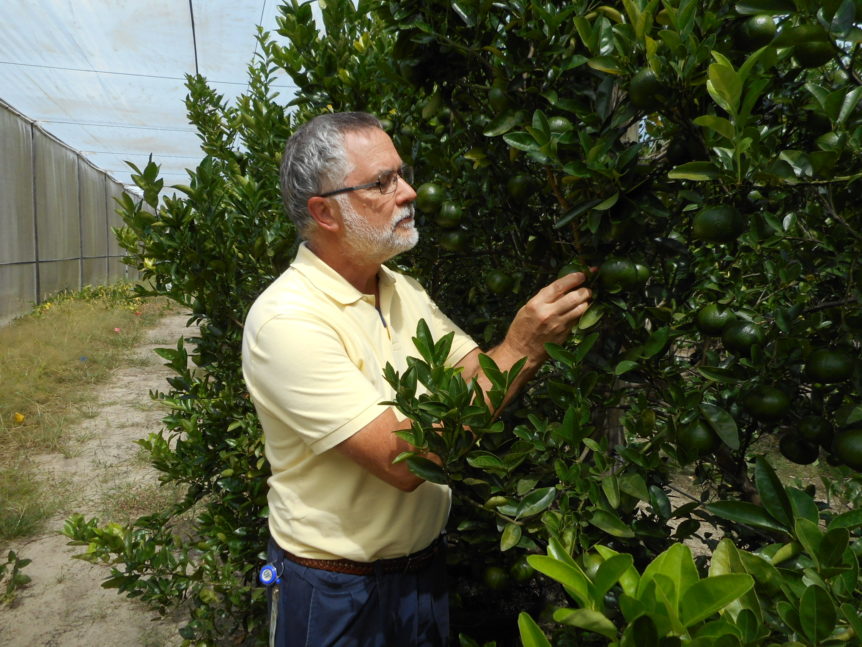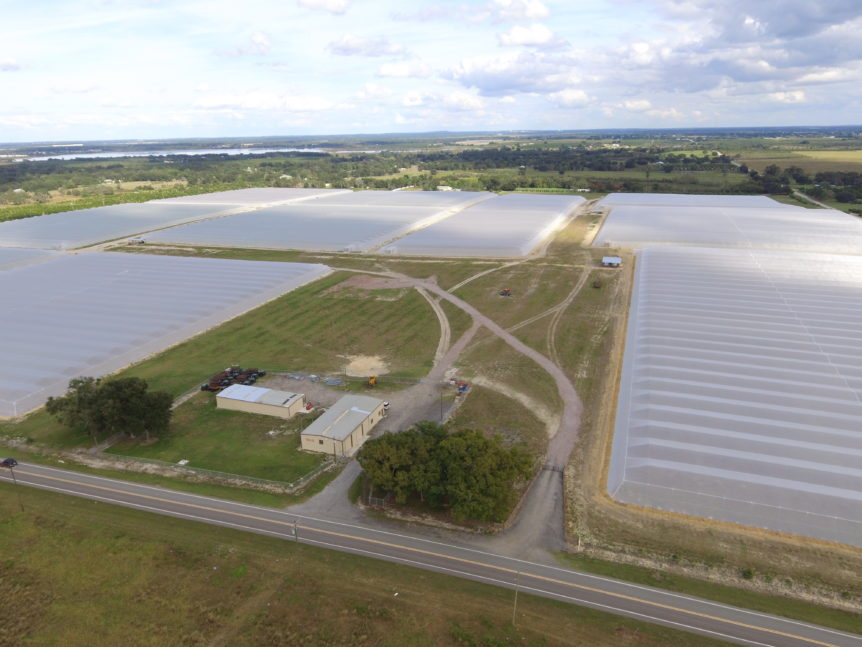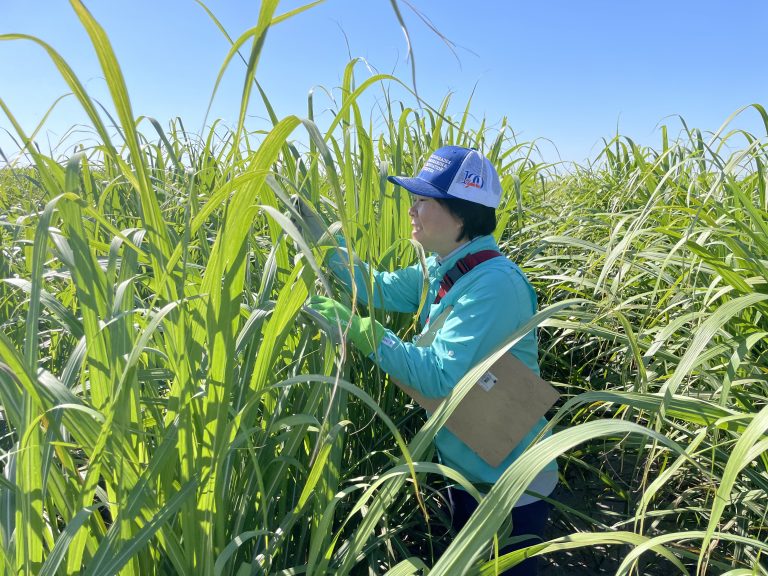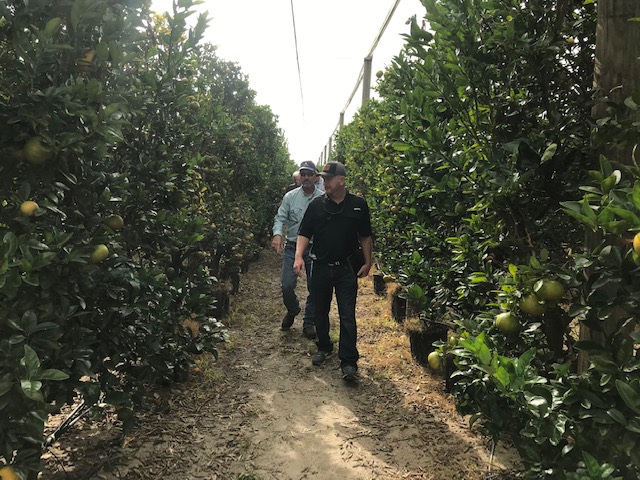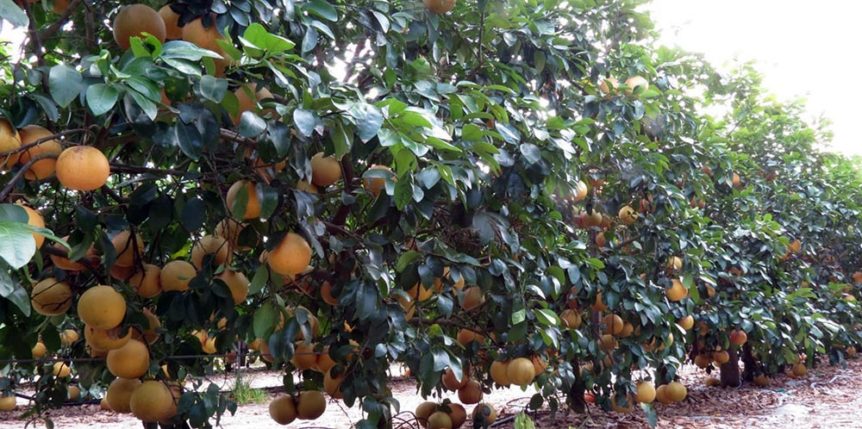Growers use the citrus under protective screen (CUPS) production system to protect trees from the Asian citrus psyllid, the insect vector of HLB disease. While grapefruit is most commonly grown in CUPS, statistics support the belief that CUPS can be conducive to other types of citrus. “There’s a need to establish the growing requirements and the needs of other varieties. …
CUPS Benefits Go Beyond Psyllid Exclusion
Citrus under protective screen (CUPS) offers benefits that go beyond its initial purpose of Asian citrus psyllid (ACP) exclusion. Steven Callaham of Dundee Citrus Growers Association discussed the advantages and sustainability of this form of citrus production. Rapid tree growth is a major benefit, according to Callaham. “It has been documented that trees inside of CUPS grow about 2.5 times …
Protecting Harvests: UF/IFAS Entomologist Fights for Florida’s Crops Against Costly Pests
Behind every fresh head of lettuce and pepper on your plate, there’s a team of scientists working tirelessly to protect crops and farmers’ harvests from pests and plant diseases. De-Fen Mou, an assistant professor of entomology at the UF/IFAS Everglades Research and Education Center (EREC) in Belle Glade, is one of the key researchers on the front lines, safeguarding Florida’s …
CUPS Success Rate a Relief for Researcher
The success of citrus under protective screen (CUPS) in protecting Florida citrus from citrus greening, also known as huanglongbing or HLB, was not surprising to Arnold Schumann. The professor of soil fertility and water quality at the University of Florida Institute of Food and Agricultural Sciences (UF/IFAS) Citrus Research and Education Center is thankful research had yielded a temporary solution …
CUPS Expensive but Beneficial
The benefits of implementing citrus under protective screen (CUPS) could be major for growers in the cold-hardy region. But they first must overcome the major limiting factor associated with the system — its cost. Arnold Schumann, a professor of soil fertility and water quality at the University of Florida Institute of Food and Agricultural Sciences (UF/IFAS) Citrus Research and Education …










